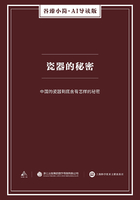She meant to write as soon as she heard from Mr. Hinkle, which could not be long now, for then she could be independent of the offers of help which she dreaded from Miss Milray, even more than from Mrs. Milray; it would be harder to refuse them; and she entered upon a passage of her life which a nature less ****** would have found much more trying. But she had the power of taking everything as if it were as much to be expected as anything else. If nothing at all happened she accepted the situation with implicit resignation, and with a gayety of heart which availed her long, and never wholly left her.
While the suspense lasted she could not write home as frankly as before, and she sent off letters to Middlemount which treated of her delay in Venice with helpless reticence. They would have set another sort of household intolerably wondering and suspecting, but she had the comfort of knowing that her father would probably settle the whole matter by saying that she would tell what she meant when she got round to it; and apart from this she had mainly the comfort of the vice-consul's society.
He had little to do besides looking after her, and he employed himself about this in daily visits which the padrone and his wife regarded as official, and promoted with a serious respect for the vice-consular dignity. If the visits ended, as they often did, in a turn on the Grand Canal, and an ice in the Piazza, they appealed to the imagination of more sophisticated witnesses, who decided that the young American girl had inherited the millions of the sick lady, and become the betrothed of the vice-consul, and that they were thus passing the days of their engagement in conformity to the American custom, however much at variance with that of other civilizations.
This view of the affair was known to Maddalena, but not to Clementina, who in those days went back in many things to the tradition of her life at Middlemount. The vice-consul was of a tradition almost as ******, and his longer experience set no very wide interval between them. It quickly came to his telling her all about his dead wife and his married daughters, and how, after his home was broken up, he thought he would travel a little and see what that would do for him. He confessed that it had not done much; he was always homesick, and he was ready to go as soon as the President sent out a consul to take his job off his hands. He said that he had not enjoyed himself so much since he came to Venice as he was doing now, and that he did not know what he should do if Clementina first got her call home. He betrayed no curiosity as to the peculiar circumstances of her stay, but affected to regard it as something quite normal, and he watched over her in every way with a fatherly as well as an official vigilance which never degenerated into the semblance of any other feeling. Clementina rested in his care in entire security. The world had quite fallen from her, or so much of it as she had seen at Florence, and in her indifference she lapsed into life as it was in the time before that with a tender renewal of her allegiance to it. There was nothing in the conversation of the vice-consul to distract her from this; and she said and did the things at Venice that she used to do at Middlemount, as nearly as she could; to make the days of waiting pass more quickly, she tried to serve herself in ways that scandalized the proud affection of Maddalena. It was not fit for the signorina to make her bed or sweep her room; she might sew and knit if she would; but these other things were for servants like herself. She continued in the faith of Clementina's gentility, and saw her always as she had seen her first in the brief hour of her social splendor in Florence. Clementina tried to make her understand how she lived at Middlemount, but she only brought before Maddalena the humiliating image of a contadina, which she rejected not only in Clementina's behalf, but that of Miss Milray. She told her that she was laughing at her, and she was fixed in her belief when the girl laughed at that notion. Her poverty she easily conceived of; plenty of signorine in Italy were poor; and she protected her in it with the duty she did not divide quite evenly between her and the padrone.
The date which Clementina had fixed for hearing from Hinkle by cable had long passed, and the time when she first hoped to hear from him by letter had come and gone. Her address was with the vice-consul as Mrs. Lander's had been, and he could not be ignorant of her disappointment when he brought her letters which she said were from home. On the surface of things it could only be from home that she wished to hear, but beneath the surface he read an anxiety which mounted with each gratification of this wish. He had not seen much of the girl while Hinkle was in Venice;
Mrs. Lander had not begun to make such constant use of him until Hinkle had gone; Mrs. Milray had told him of Clementina's earlier romance, and it was to Gregory that the vice-consul related the anxiety which he knew as little in its nature as in its object.














